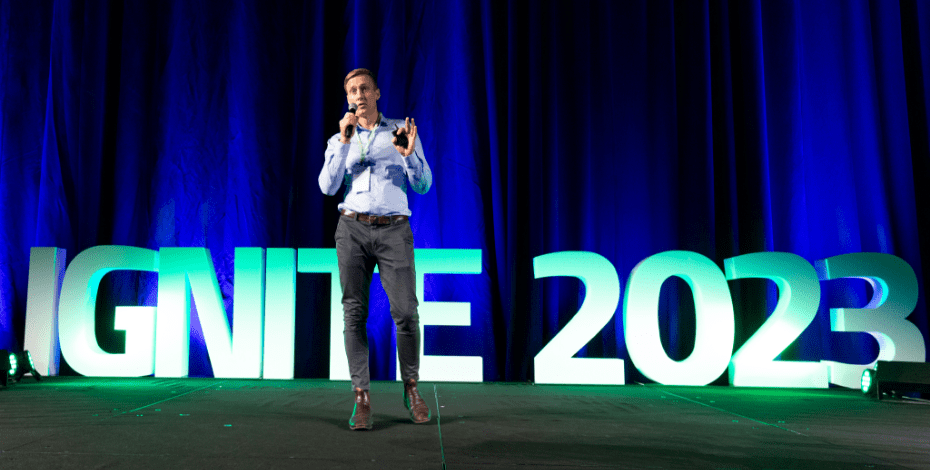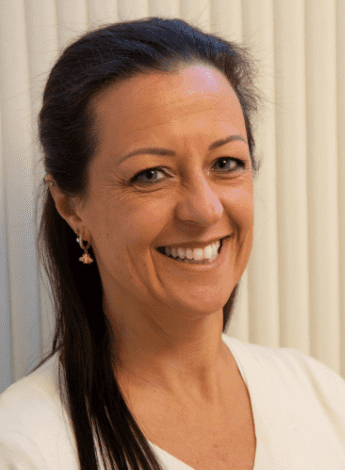
App to help people with back pain

My Back Exercise, a smartphone app designed to help people with back pain, was a finalist at last year’s Physiotherapy Research Foundation Physio Pitchfest competition. Kate Roberts talks about the development of the app.
Modern approaches to treating low back pain focus on physical activity and encouraging people with low back pain to self-manage their pain and activity.
Researchers from Professor Paulo Ferreira’s team at the University of Sydney are developing an app that will help people with low back pain to manage it through exercise and education.
‘Self-management is about empowering people to look after their backs themselves, knowing what they can do that’s good for them but also knowing when they need to seek help,’ says Kate Roberts MACP, a physiotherapist and PhD student in Paulo’s team at the University of Sydney and the driver behind the team’s short-listed entry in the Physiotherapy Research Foundation’s Physio Pitchfest, which was held at the APA’s IGNITE 2023 national conference.
Her PhD research has focused on positive lifestyle behaviours relating to, for example, physical activity, sleep, intake of alcohol and tobacco, and body mass index.
‘We found that the more positive lifestyle behaviours people have, the more likely they are to maintain high levels of function when they’ve got low back pain and that’s very important,’ she says.
The My Back Exercise app has been developed by a team of researchers from the University of Sydney and elsewhere and has a variety of components including a six-week exercise program, sleep retraining, general dietary information and back pain education.
‘It’s really a lifestyle self-management app that we’re hoping can improve access for people, whether they live in cities or in regional, rural or remote areas of Australia where they may not have access to physiotherapy,’ Kate says.
‘We’re not just saying you need to exercise; we’re actually tapping into all of those aspects of lifestyle.
‘This approach is designed to fit with the cognitive, behavioural and biopsychosocial lens through which we try to look at low back pain.’
Within the app, exercises are prescribed based on functional activities that the user is experiencing difficulty with.
Each week, the exercises are progressed based on the user’s perception of how they are going.
More exercises will be added to the app over time.
It includes a sleep program for insomnia, developed by researchers at the Woolcock Institute of Medical Research, and psychologists helped to create its motivational elements.
The app also has an educational component, with a focus on self-management and pain education.
While a beta version of the app has been developed and tested for usability, the research team is waiting for the green light on a randomised controlled trial that will evaluate the effectiveness of the app in increasing physical function in people with low back pain.
‘The study will look at all of the aspects of the app that we’ve built.
‘We are doing an innovative adaptive randomised controlled trial and will look at each component of the lifestyle program to see whether any combinations are better than others.
‘Do people need to do the exercises and work on their sleep, or do people need to do the exercises and work on their sleep and look at their diet, or do they just need the exercises?’ Kate says.
The trial is expected to take six months, with each participant working through a six-week program and some follow-up assessments.

Kate Roberts is part of the team at the University of Sydney developing the My Back Exercise app.
Once the trial is complete, the research team plans to offer it initially through several local health districts in and around Sydney before making it more widely available.
Kate says preparing the Pitchfest application was an intrinsically valuable exercise.
‘I’m a clinician and a researcher and yet when I sat down to put the Pitchfest application together, I realised that there were so many aspects that I hadn’t thought of.
‘I needed to bring the team together to talk it over from beginning to end,’ she says.
‘I learned so much in the process of putting it together and thinking the project all the way through to the end.
‘This ensured that we weren’t going to just make an app in a process that stopped when we finished making it.
‘Instead, we knew what was going to happen next and how we were going to get it out to people, build interest in it and make sure that it was effective.
‘For me that was the biggest benefit of being involved in Pitchfest.’
The team has big plans for the app.
One is to make sure that it reflects the diversity of users—for example, in the appearance of the app, which currently only allows users to choose between two avatars to guide them through the program, and in the language options offered.
The app is currently available only in English but the team hopes to add other languages, including some of the more common languages spoken by immigrant peoples in Australia as well as Aboriginal and Torres Strait Islander languages.
Kate says that another important aspect of the app is its usefulness to people in rural and remote communities.
‘People tell me, for example, “I can’t go and see my physio because I can’t drive at dawn and dusk due to the kangaroos. So I can only drive between this time and this time, but it’s an hour and a half to get to the physio for a half-hour appointment and an hour and a half to get home again. I just can’t do it.”
‘That’s such a classic rural Australian story.
‘We would love for the app to be available to anybody with low back pain, supporting them with lifestyle changes even when they can’t get to see their physio,’ she says.
Kate wasn’t able to deliver the pitch herself at Pitchfest due to other obligations so another member of the team, fellow physiotherapist and PhD student Jim Zouch, stepped up to do the presentation.
While the app didn’t win one of the awards, it generated a lot of interest and discussion.
‘Even if you don’t get the money, Pitchfest is such a great experience.
‘If you think you’ve got an idea and you’re trying to get some legs, being part of that process is so valuable,’ Kate says.
>> Click here for more information about the My Back Exercise app, or contact Kate Roberts at katharine. roberts@sydney.edu.au.
>> The 2023 PRF Physio Pitchfest was proudly sponsored by VALD Health.
Course of interest:
Advances in back pain: diagnostic triage, exercise and pain science
© Copyright 2025 by Australian Physiotherapy Association. All rights reserved.





